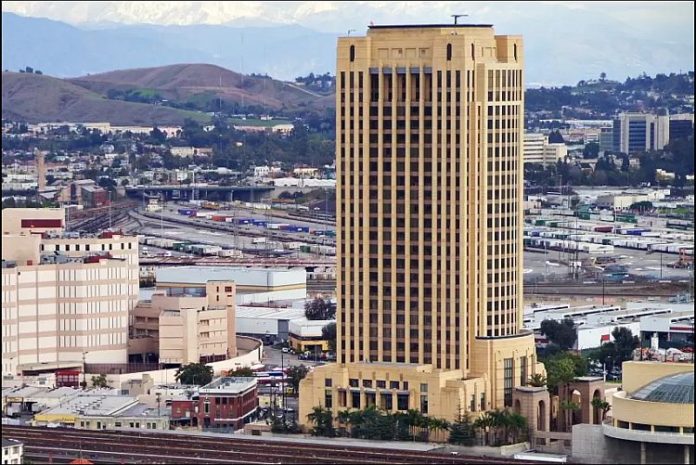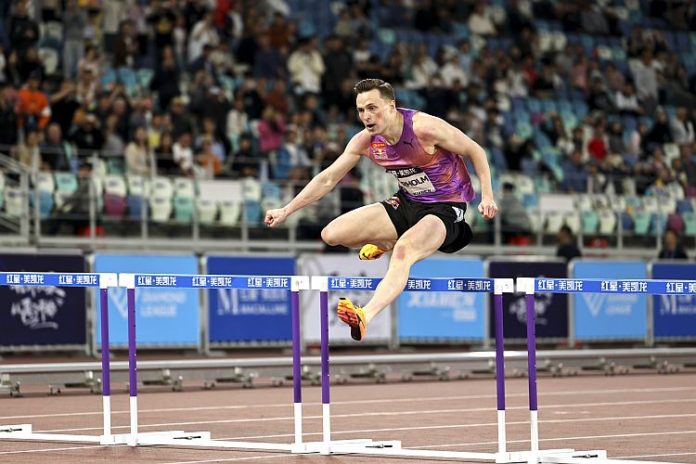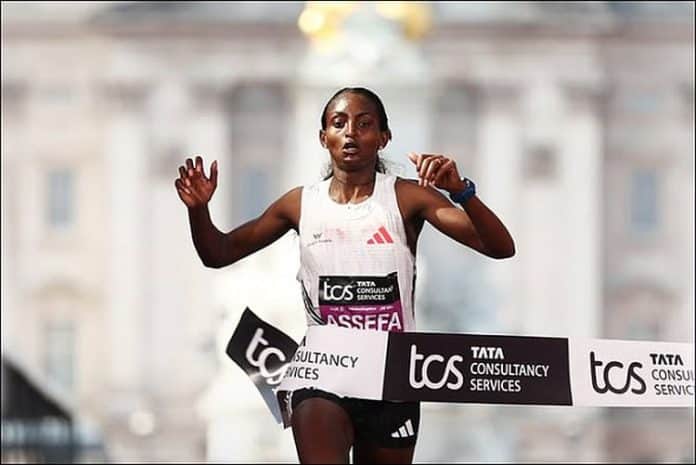★ The Sports Examiner: Chronicling the key competitive, economic and political forces shaping elite sport and the Olympic Movement.★
★ To get the daily Sports Examiner Recap by e-mail: sign up here! ★
≡ METRO FUNDING REQUEST ≡
Los Angeles Metropolitan Transportation Authority chief executive Stephanie Wiggins told Public Radio KCRW she’s optimistic about the $3.2 billion request for Federal funding for public transportation support for the 2028 Olympic Games in Los Angeles.
Speaking with host Danielle Chiriguayo, Wiggins was asked about the status of the agency’s request for 2028 support, and explained:
“What we know is for ticketed spectators, for now, you will not be able to drive your car to a venue as a ticketed spectator. For security reasons, you have to take transit, walk, bicycle, or get dropped off.
“Given the tickets that are projected to be sold and the amount of visitors that are anticipated for those games, we can expect a million additional people a day.
“Well, we’re carrying a million people a day today on the Metro system with 2,000+ buses. So essentially, to handle the level of demand for the Olympics and Paralympics, that’s like a whole other system.
“The $3.2 billion ask is largely driven by the need to borrow about 2,700 buses from across the country. That means you’re paying for their mechanics, the bus operators, their wages, and all the supporting infrastructure; as well as making some improvements on mobility hubs that doesn’t degrade the experience of the million essential riders that we’re carrying today. Our ask has been submitted, and we expect it to be favorably received.
“These are America’s Games. We want to make sure they’re spectacular for everyone. Fundamentally, I’m sure no one wants a degraded experience for the existing folks who ride our system. This is a once-in-a-lifetime opportunity. The whole world will be watching. Given the $17 billion that we’re already investing in our rail revolution, this is definitely something that the federal government will have a return on investment on. Yes, we will be ready. With the support of the federal government and our local and state partners, yes, we will be ready.”
¶
With the announcement of most of the remaining venues for the 2028 Olympic Games, all or part of 35 of the 36 sports in the Games will be in Los Angeles County, with a heavy concentration in the downtown Los Angeles area, with eight sites and 13 sports.
LA28 Chair Casey Wasserman was equally optimistic about transportation and traffic for 2028, saying at the 144th International Olympic Committee Session in Greece in March:
“For 17 days, we can fix any problem in the world. And for 17 days, we can manage traffic and movement of people in a way that you can’t every day, normally. So, whether it’s the things they did in ‘84, removing trucks from the streets, deliveries from the streets except between midnight and 5 [a.m.], obviously, creating remote work now is a very practical solution. There is tens of billions of dollars of infrastructure in terms of transportation – not for the Olympics, not related to the Olympics – but they will be done by the Olympics, will be meaningfully different than 1984.
“In 1984, we were building freeways, literally, today we’re building, I think, the second-largest metro construction project on earth. And so we are very confident in our ability to deliver, and let’s not get confused. Our venues are designed, and our city is designed, for people to drive their cars to events.
“They won’t drive them in the same quantities, at the same scale they do today, but that will also be a part of our delivery, because it would be a mistake not to take advantage of the venues that are designed and the use case they are designed for.”
So, people driving cars is definitely part of the LA28 plan, moving along with its “public transit first” concept for the last mile to the Olympic and Paralympic venues, which is already in wide use for special events of all kinds, such as the annual Rose Parade and Rose Bowl Games in Pasadena.
Wasserman referred to freeway building, which was actually not going on in 1984, but picked up later with the last new freeway to be opened, the I-105, in 1993.
¶
★ Receive our exclusive, weekday TSX Recap by e-mail by clicking here.
★ Sign up a friend to receive the TSX Recap by clicking here.
★ Please consider a donation here to keep this site going.
For our updated, 694-event International Sports Calendar for 2025 and beyond, by date and by sport, click here!



























